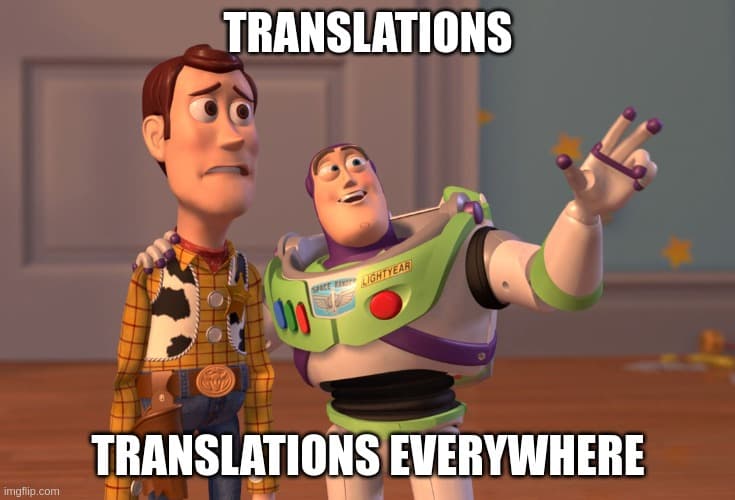RabbitMQ is one of the world’s most popular open-source message brokers. With its tens of thousands of users (and growing), its lightweight and easy-to-deploy nature makes it a worldwide success across small startups and large enterprises across the globe.
But how do you know if it’s best for your business?
Read on and get the rundown on the reliable messaging software that delivers every time.
So, what exactly is RabbitMQ?
RabbitMQ is an open-source message broker software that implements the Advanced Message Queuing Protocol (AMQP). It is used to facilitate communication between applications or microservices, by allowing them to send and receive messages in a reliable and scalable way.
Simply put, RabbitMQ acts as a mediator between applications that need to exchange messages. It acts as a message queue, where producers can send messages, and then consumers can receive and process them. It ensures that messages are delivered in order, without loss, and provides features such as routing, failover, and message persistence.
RabbitMQ is a highly powerful tool for building complex, scalable, and reliable communication systems between applications.
What is a Message Broker?
A message broker is an intermediary component that sits between applications and helps them communicate with each other.
 Basic set-up of a message queue:
CloudAMP
Basic set-up of a message queue:
CloudAMP
In short, applications send messages to the broker. The broker then sends the message to the intended receiver. This separates sending and receiving applications, allowing them to scale independently.
The message broker also acts as a buffer between sending and receiving applications. It ensures that messages are delivered in the most timely and efficient manner possible.
In RabbitMQ, messages that are stored in queues and applications can also post and consume messages from them, too. It supports multiple messaging models including point-to-point, publish/subscribe, and request/reply, making it a flexible solution for many use cases.
By using RabbitMQ as a message broker, developers can decouple the components of their system, allowing them to build more resilient, scalable, and resilient applications.
So why should I choose RabbitMQ?
We’ve already touched on this slightly but, there are several reasons why RabbitMQ is a popular choice for implementing message-based systems for your business:
It’s scalable: RabbitMQ can handle large amounts of messages and can be easily scaled up.
It’s flexible: RabbitMQ supports multiple messaging models, including point-to-point, publish/subscribe and request/reply.
It’s reliable: RabbitMQ provides many features to ensure reliable message delivery, including message confirmation, message persistence, and auto-recovery.
Its Interoperability: RabbitMQ implements the AMQP standard, making it interoperable with multiple platforms and languages.
To learn more about RabbitMQ’s impressive problem-solving capabilities, you can delve into our
technical deep dive
detailing its delivery.
What are the benefits of using RabbitMQ for my business?
RabbitMQ’s popularity because of its range of benefits, including:
Decoupled architecture: RabbitMQ allows applications to communicate with each other through a centralised message queue, decoupling- sending and receiving applications. This allows for a flexible and extensible architecture, in which components can scale independently.
Performance improvement: RabbitMQ can handle large volumes of messages. It also has low latency, which improves overall system performance.
Reliable messaging: RabbitMQ provides many features to ensure reliable messaging, including message confirmation, message retention, and auto-recovery.
Flexible Messaging Model: RabbitMQ supports a variety of messaging models, including point-to-point, publish/subscribe, and request/reply, enabling a flexible and adaptable messaging system response.
Interoperability: RabbitMQ implements the AMQP standard, making it interoperable with multiple platforms and languages.
But don’t just take our word for it.
Erlang’s world- leading RabbitMQ experts have been trusted with implementing RabbitMQ for some of the world’s biggest brands.
You can
read more
about their experience and the success of RabbitMQ in their business.
When should I start to consider using RabbitMQ?
Wondering when the right time is to start implementing RabbitMQ as your messaging system? If you’re ready for reliable, scalable, and flexible communication between your applications, it might be time to consider.
Here are some common use cases for RabbitMQ:
Decoupled Architecture: RabbitMQ allows you to build a decoupled architecture, in which different components of your system can communicate together- without the need for a tight coupling. This makes your system more flexible, extensible and resilient.
Asynchronous communication: When you need to implement asynchronous communication between applications, RabbitMQ can help. For example, do you have a system that needs to process large amounts of data? RabbitMQ can be used to offload that processing to a separate component, allowing the parent component to continue processing requests, meanwhile, the data is processed in the background.
Microservices: RabbitMQ is well-suited to a microservices architecture, where different components of your system are implemented as separate services. It provides a communication infrastructure, allowing these services to communicate with each other.
Integrating with legacy systems: Do you have legacy systems that need to communicate with each other? RabbitMQ can provide a common messaging infrastructure that allows those systems to exchange messages.
High Availability and Reliability: RabbitMQ provides features such as message persistence, automatic failover, and replication, making it a reliable solution for mission-critical applications.
Multi-Protocol Support: RabbitMQ supports multiple messaging protocols, including AMQP, MQTT, and STOMP, making it a flexible solution for different types of applications.
Ultimately, the choice is yours to use RabbitMQ or any other messaging system, as it all comes down to your specific business needs.
I would like to get started with RabbitMQ!
Whether you are building a small application or a large-scale system, RabbitMQ is a great solution to enable inter-component communication.
We appreciate that you might have further questions, and our team of expert consultants are on hand and ready to talk you through the process. Just head to our
contact page
.
The post
Getting started with RabbitMQ: A beginner’s guide for your business
appeared first on
Erlang Solutions
.
 chevron_right
chevron_right




 Basic set-up of a message queue:
Basic set-up of a message queue:



